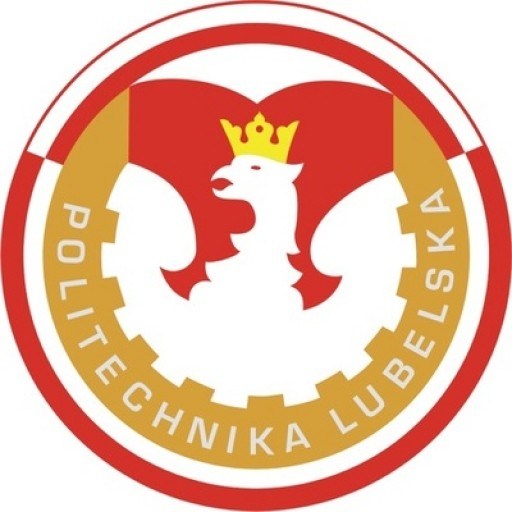The "Theory and Structures of Buildings" program at the Slovak University of Technology in Bratislava offers a comprehensive education in the fundamental principles and advanced methodologies related to the design, analysis, and construction of building structures. This academic program is designed for students who aspire to become experts in structural engineering, focusing on the theoretical underpinnings that ensure the safety, stability, and durability of buildings. Throughout the program, students will explore a wide spectrum of topics, including the mechanics of materials, structural analysis, load calculations, and the behavior of various construction materials under different forces. The curriculum emphasizes both classical and modern structural design techniques, integrating theoretical concepts with practical applications using state-of-the-art software tools and laboratory experiments.
Students will learn about architectural principles and structural systems used in modern construction, gaining insights into the integration of aesthetics and functionality with structural integrity. The program covers diverse fields such as concrete and steel structures, timber constructions, and innovative building materials, preparing graduates to tackle complex engineering challenges. Emphasis is placed on developing skills in critical thinking, technical communication, and teamwork, fostering the ability to collaborate effectively in multidisciplinary projects.
The program also includes training in project management and compliance with building regulations and standards, ensuring graduates are well-equipped for professional practice. Collaboration with industry partners and internships provide valuable practical experience, linking classroom knowledge with real-world applications. Upon completion, graduates will be capable of designing safe and economical structural solutions, conducting structural assessments, and contributing to sustainable building development. The "Theory and Structures of Buildings" program prepares students for careers in engineering consultancy, construction companies, or further academic research, offering a strong foundation to advance in the evolving field of structural engineering.
The Theory and Structures of Buildings program at the Slovak University of Technology in Bratislava offers students comprehensive education in the fundamental principles of building design, structural analysis, and construction technology. The curriculum is designed to provide a strong theoretical background combined with practical skills necessary for the safe, efficient, and innovative design and construction of various types of buildings. Throughout the program, students explore the physic-mechanical properties of construction materials, learn to analyze structural loads and stresses, and develop competencies in selecting appropriate materials and structural systems for different architectural requirements. The coursework covers a wide range of topics including statics, strength of materials, building materials, structural analysis and design, as well as an in-depth study of modern construction methods and technology. Students also gain knowledge in the application of computer-aided design (CAD) tools and structural modeling software, which are essential for contemporary engineering practice. The program emphasizes the importance of sustainable development and environmentally friendly construction practices, encouraging students to innovate and adapt in response to current challenges in the construction industry. Practical training and laboratory work are integral parts of the curriculum, enabling students to apply theoretical concepts in real-world scenarios, perform structural calculations, and evaluate building safety and stability. Graduates of the program are equipped to pursue careers in structural design, construction supervision, research, and development within the building industry. They are prepared for professional roles in engineering consultancy firms, construction companies, and public institutions responsible for urban planning and sustainable development. Upon completion, students receive a Bachelor's or Master's degree, depending on their level of study, which qualifies them for advanced roles and further specialization in the field of building theory and structures. This program aims to produce well-rounded, innovative engineers capable of contributing to the development of safe, sustainable, and resilient built environments.
The Theory and Structures of Buildings program at the Slovak University of Technology in Bratislava is designed to provide students with an in-depth understanding of the fundamental principles governing the design, analysis, and behavior of building structures. The curriculum emphasizes a thorough knowledge of structural mechanics, materials science, and construction technology, preparing graduates to solve complex engineering problems related to the stability, safety, and durability of various types of buildings. Students are introduced to the theoretical foundations of structural analysis, including statics, dynamics, and elasticity, alongside practical applications through computer-aided design and structural modeling. The program also covers advanced topics such as seismic design, load assessment, and innovative structural materials, ensuring students are equipped with the latest industry knowledge and skills. Emphasis is placed on multidisciplinary collaboration, integrating architecture, civil engineering, and sustainability principles to promote eco-friendly and cost-effective structural solutions. The coursework includes lectures, laboratory exercises, practical projects, and internships aimed at developing both theoretical expertise and practical skills. Graduates will be prepared for careers in structural design, consulting engineering, research, and development within the construction industry, or for further postgraduate studies. The program ensures that students meet the academic and professional standards required for engineering practice or academic research in the fields related to building structures. Overall, the program aims to cultivate competent engineers capable of contributing to the development of innovative and sustainable building solutions that meet modern safety and efficiency requirements.
The financing of the "Theory and Structures of Buildings" study program at the Slovak University of Technology in Bratislava is primarily supported through a combination of public funding, tuition fees, and institutional resources. As a faculty of a Slovak public university, the program benefits from government subsidies allocated to higher education institutions in Slovakia, which are used to cover a significant portion of operational costs, faculty salaries, and academic materials. Students enrolled in the program are subject to tuition fees, which are set by the university and can vary depending on the student's nationality, with Slovak citizens often paying lower fees compared to international students. These fees help finance program-specific resources such as laboratories, digital tools, and specialized teaching staff.
In addition to tuition, the program may receive funding through European Union grants and projects aimed at enhancing research, innovation, and educational infrastructure in the field of civil engineering and architecture. The university also invests its own resources into modernizing the curriculum, expanding research facilities, and supporting student activities related to structural analysis and building theory. Scholarships and financial aid options are available for eligible students, often provided by the university or governmental agencies, encouraging wider access to higher education.
Research activities within the program are often financed through project grants that involve collaborations with industry partners, government agencies, and international organizations. These sources of funding support the development of advanced theoretical models, experimental investigations, and applied research in building structures, which in turn enrich the educational experience. The program’s financing model emphasizes sustainable development, continuous improvement of academic quality, and the integration of innovative teaching methods and research outputs.
Overall, the funding structure of the "Theory and Structures of Buildings" program is designed to ensure high-quality education, promote scientific research, and facilitate infrastructure development, thereby maintaining the university's reputation as a leading institution in civil engineering education in Slovakia.
The Theory and Structures of Buildings program at the Slovak University of Technology in Bratislava offers students comprehensive education in the fundamental principles of building design, construction, and structural analysis. This program aims to equip students with the necessary knowledge and skills to analyze, design, and evaluate various structural systems used in modern architecture and civil engineering. The curriculum integrates theoretical concepts with practical applications, enabling graduates to address complex engineering challenges related to the stability, safety, and sustainability of buildings.
Students study a broad range of subjects, including mechanics of materials, structural analysis, structural design, building materials, and construction technology. Emphasis is placed on understanding the behavior of different structural elements under various load conditions and developing innovative solutions for efficient and durable structures. The program also covers essential aspects of building physics, environmental considerations, and building codes, ensuring that graduates can design structures compliant with local and international standards.
The faculty employs a combination of lectures, laboratory exercises, computer modeling, and project-based work to provide a well-rounded educational experience. Students have access to modern laboratories equipped with advanced testing and simulation tools, facilitating hands-on learning and research opportunities. Collaborative projects with industry partners are often integrated into the program, fostering a practical understanding of real-world engineering issues.
Graduates of the Theory and Structures of Buildings program are prepared for careers in structural engineering, design consultancy, construction management, and research. They may find employment in architectural firms, construction companies, or governmental agencies involved in infrastructure development. Additionally, the program provides a solid foundation for those wishing to pursue postgraduate studies in structural engineering, architecture, or related disciplines.
The program emphasizes innovation, sustainability, and resilience in structural design, aligning with contemporary trends and societal needs. By providing a rigorous academic environment and fostering critical thinking, the program aims to develop professionals capable of contributing to the safe and sustainable development of built environments. The interdisciplinary approach ensures that graduates are versatile and adaptable to the evolving demands of the construction industry worldwide.







